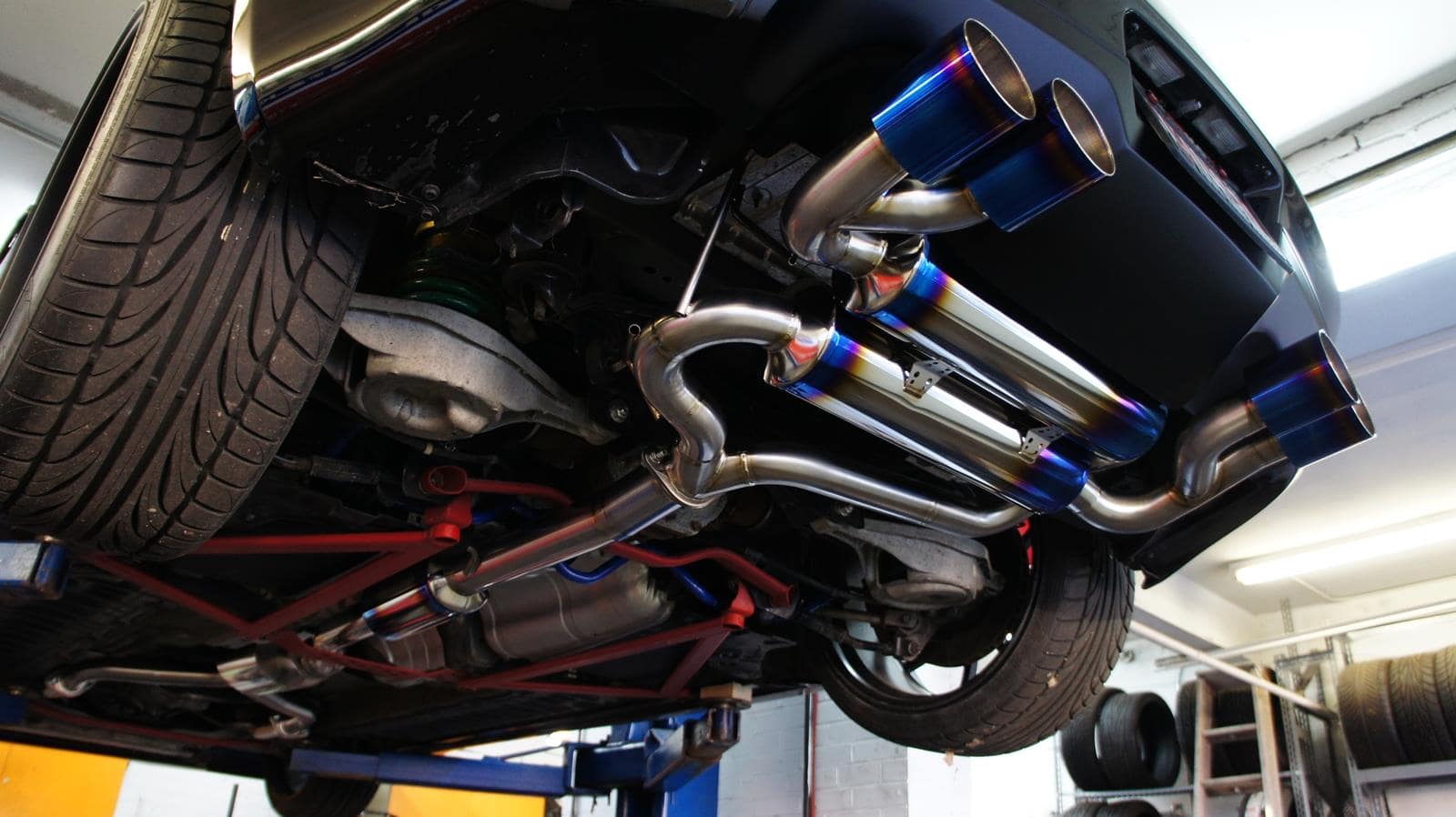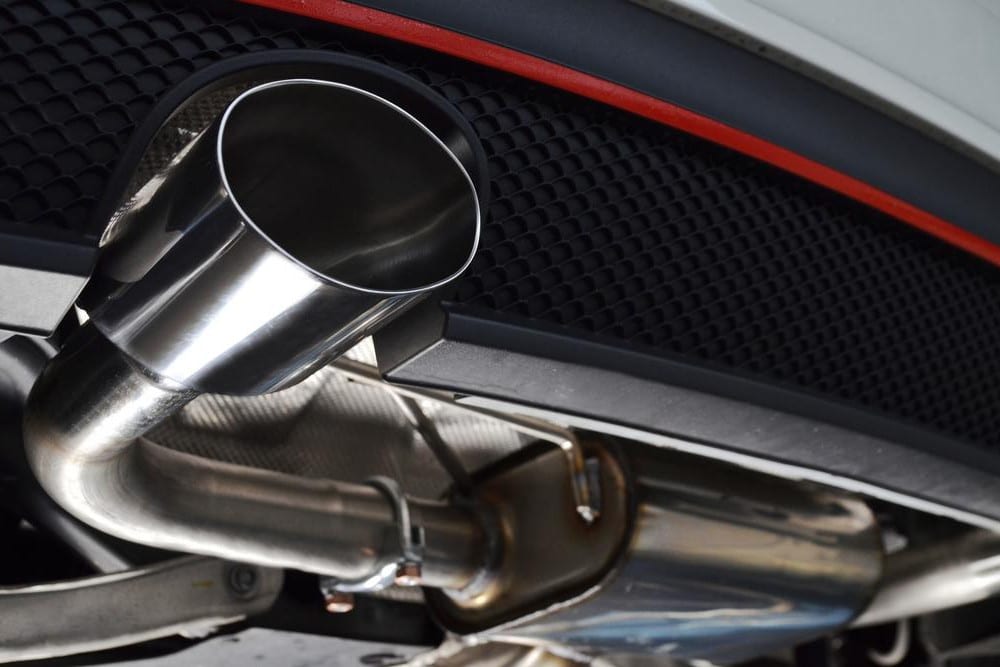Your exhaust might play a bigger role than you’d think, including reducing harmful tailpipe emissions, directing fumes out of the cabin and away from you, reducing the noises your car makes, helping your engine run optimally and maximizing fuel efficiency. If your exhaust system is to malfunction for any reason, it would affect your vehicle’s performance, and in many cases, it would create strange, loud noises.
Knowing what the different types of unusual exhaust noises mean is a basic car maintenance tip to ensure timely troubleshooting and repairs to keep your car running in tip top shape. Read on to learn more about the different exhaust noises and their reasons, how to deal with them and how much that would cost you.
Contents
Exhaust System Basics
The components in your exhaust system are also prone to wear and tear, like everything else. They can be corroded and develop rusting holes, or become broken or leaky. These problems will compromise your vehicle’s engine performance in various ways, such as poorer fuel economy and increase emissions. If undetected or ignored, a bad exhaust system can even let toxic fumes enter your cabin.

The various unusual exhaust noises can point to different problems with different parts of the exhaust system. Therefore, before we start, you need to first know the different parts of the exhaust system to be able to troubleshoot and fix the issue. Your vehicle’s exhaust system consists of the following components:
- Exhaust valve and piston: After harmful exhaust gases are generated as the by-product of the combustions in the engine’s the combustion chamber, they will be forced out and transfer to the exhaust manifold by the exhaust valve and piston.
- Exhaust manifold: The exhaust manifold collects the exhaust gases from the piston to the catalytic converter and from multiple cylinders to one single exhaust pipe. In the exhaust manifold, there are usually one or more oxygen sensors to support the operation of the catalytic converter.
- Catalytic converter: The catalytic converter converts some toxic gases to carbon dioxide (CO2) and water, which allows for cleaner emissions. That said, the exhaust is generally still toxic in confined spaces. More oxygen sensors may be fitted after the catalytic converter to monitor its operation.
- Exhaust pipe: After exhaust fumes from multiple cylinders are converted into cleaner substances, they are delivered to this pipe, and then it carries the cleaner exhaust gasses to the muffler.
- Muffler: The muffler’s job is to reduce the noises created by the combustion process and the expulsion of exhaust gases.
- Tailpipe: This visible component is where exhaust leaves your vehicle.
The Reasons For Loud Exhaust Noises
Roaring Noises
Roaring noises is a telltale sign of a faulty exhaust system, and the most likely culprit in this case will be the silencer. The silencer is probably the part of the exhaust that is most prone to problems and thus usually needs attention first. Because it is the part furthest from the engine, it stays relatively cold, therefore allowing exhaust gases to condense and form a pool of corrosive acid inside the system. The silencer’s very location makes it the component of the exhaust system most likely to be corroded by acid.
Hissing Noises
Loud hissing noises is a sign that there is a crack in the exhaust pipe, exhaust manifold or the gasket that’s letting exhaust gases leak through, thus creating the sound of air hissing. If you notice loud chugging noises though, it’s likely that there’s a blockage in the exhaust system.
Listening more closely to determine where in the vehicle the exhaust hissing noise is coming from can help you further narrow down the real culprit for loud exhaust noises:
- Under the car: If your loud hissing sounds like it is underneath your car, particularly near the center section of the exhaust, the most common reasons are a simple rusty hole in your exhaust pipe, or a loose connection or a bad seal at the catalytic converter or center resonator. The good news is these are quite easy and cheap fixes, compared to the most expensive exhaust repair, which is a catalytic converter replacement. A rusty pipe that develops cracks or holes can simply be welded or replaced in a section.
- From the engine bay: If you hear loud hissing exhaust sounds coming from the engine area, the source of the leak is likely a bad gasket or a loose flexible pipe connection, which are less serious and not too expensive. Or if you’re unlucky, you might be dealing with a cracked exhaust manifold.
- From the back: If the unusual hissing sound is coming from the back of the vehicle, inspect for leaks right at the muffler. The most common reasons for muffler leaks is a bad seal at the muffler or a loose muffler connection, or simply leaks due to wear and corrosion over time. These are also simple and inexpensive to repair, and even a total muffler replacement wouldn’t cost as much as a catalytic converter replacement.
Metallic Rattling Noises
The sound of loud metallic rattling or vibrations under the car often means that something is in contact with the exhaust pipe when it shouldn’t be, or a support bracket, hanger, mounting or a clamp has become loose and thus is not holding your exhaust securely in place. If these parts become corroded, fractured or fall off completely, they will cause extra stress to the exhaust housing and this might contribute to premature failure of the exhaust system.
If you hear rattling sounds of metallic parts under the car, check if the exhaust system has become misaligned by simply giving it a little shake. If it moves around, then something definitely needs tightening. To fix this problem, you just need a ratchet, wrench, or possibly a screwdriver.
If the culprit is a bad catalytic converter, you will hear what sounds like a shaking box of rocks when you pull to a stop in traffic. Do note that the catalytic converter is the first thing that scrap metal thieves would go for, particularly on larger vehicles like SUVs and trucks. And if you’re starting up a vehicle with the catalytic converter stolen and gone, you will hear a loud exhaust noise.
READ MORE
Other Symptoms For Troubleshooting
Lower Fuel Economy
If you notice poorer fuel economy than usual in addition to loud noises as above, this could be a good indicator that there’s a problem with your exhaust. Exhaust leaks mean that your engine needs to work harder, and sub-optimal engine operation directly translates to it eating up more fuel to do its job.
Vibration In the Cabin
When you have an exhaust leak, together with the hissing noise, you may notice unusual vibrations on your steering wheel, foot pedals or driver seat. If you find that your car is suffering a loss of power, such as poorer acceleration performance, then the most likely reason is that your exhaust is leaking.The reason for unusual vibration in the cabin could also be a hole in your exhaust or that the exhaust system is disconnected. Cabin vibrations could also be a sign of a problem elsewhere with your engine that is causing the engine to run at sub-optimum conditions.
Note: Backfiring, Sputtering Noises
If you notice loud backfiring and sputtering noises from the rear, it usually suggests a problem with the engine tuning rather than your exhaust system. It’s most likely that something under the hood needs to be repaired or adjusted, instead of your exhaust tubing, the catalytic converter or the muffler.
Inspect Your Exhaust
Whether or not you noticed loud exhaust noises, you can troubleshoot and identify many exhaust problems with a visual check. Inspect the entire length of the exhaust from the engine all the way down to the tailpipe. Check for any external cracks or holes caused by corrosion, especially at the seams and joins between the exhaust manifold and the cylinder, and other sections where two components meet each other.
External rust that’s on the surface only is less serious than when a part is rusted through and its structural integrity is compromised, which would require a replacement instead of patching up the rusting holes. What’s more serious is corrosion that takes place from the inside of the exhaust system due to internal condensation build up.
Use a screwdriver to gently prod the rusty spots to feel it. If the structure doesn’t feel strong and secure or a hole is formed as you prod lightly, it is a sure sign that you’ll need to replace this section of the exhaust that’s already rusted through.
The Cost To Repair and Replace an Exhaust
The most expensive repair related to the exhaust system would be a catalytic converter replacement, which is in the center of the system. Most other exhaust repairs are relatively inexpensive.
Catalytic converter replacement can easily cost you over $1,000. Depending on your vehicle’s make and model, the average cost of a catalytic converter replacement is between $950 and $2,500 including parts and labor. The price for the catalytic converter alone can be up to $2,250, which might be close to an old car’s value.
Every other exhaust repair and replacement doesn’t come close. The average cost for exhaust pipe replacement is between $760 and $800, with parts usually priced at around $700 while labor costs range from $60 and $100.
Meanwhile, a muffler replacement can set you back by $75 to $750 depending on several factors. While generic aftermarket mufflers are cheap, priced at $25 to $50, a medium quality mid-range muffler will cost from $50 to $125, and the cost of a high-end performance muffler is $300 to $500 (if you own a luxury vehicle, you will most definitely need to get one of these performance muffler). And add $80 to $100 of labor cost on top of that.
DIY repairs
There are certain manageable and inexpensive exhaust repair jobs that you can do yourself in your own garage, with the most common repairs being patching holes on the muffler, and re-welding a dangling muffler back in place.
Small rusty holes are easy to patch up with some epoxy filler or sealant, which are widely available in most hardware stores. Patching up small holes should make a loud exhaust a little bit less noisy, but this won’t really quiet it down. For bigger holes, repair patches would be more effective. Such patching might only deal with loud exhaust noise for a while, because if you have serious cracks on a rusty exhaust or several holes rusting together, or internal corrosion, you’d need to replace the rusty sections to deal with the problem.
Should I Drive With A Broken Exhaust?
While you can still technically drive with a broken exhaust, it’s certainly not safe and if prolonged, it can lead to more serious and expensive damages. And you might be surprised that it’s not legal to drive with a loud and/or broken exhaust system.
In the United States, the Road Traffic Act 1988 stipulated that you would be guilty of an offence if you drive a vehicle in a compromised condition that would pose a danger to yourself or others vehicles, and a broken exhaust qualifies as such a dangerous condition.



